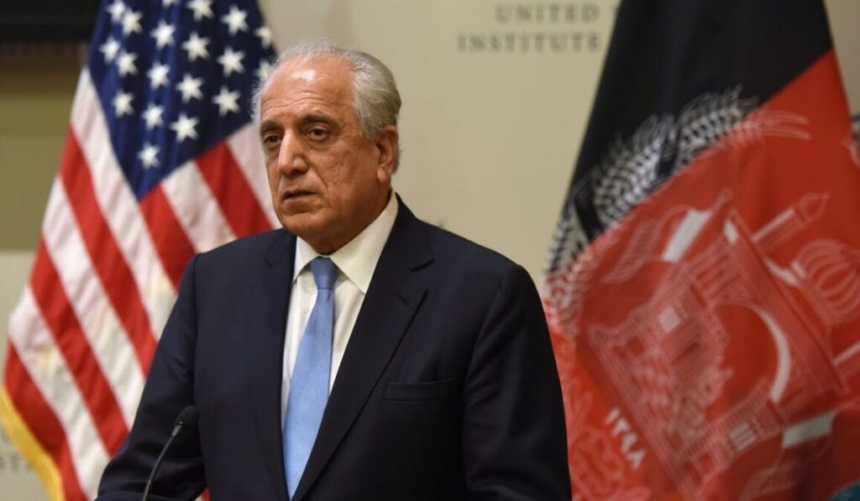RASC News Agency: In a strongly worded warning, Zalmay Khalilzad, the former U.S. Special Envoy for Afghanistan Reconciliation, cautioned that Pakistan’s powerful military establishment is maneuvering to assume control over the United States’ Afghanistan policy, effectively sidelining Washington’s independent oversight and empowering destabilizing actors in the region including the Taliban regime. Khalilzad’s comments followed the visit of General Asim Munir, Pakistan’s Chief of Army Staff, to Washington. The trip included high-level engagements, including a private meeting with former President Donald Trump, fueling speculation that Rawalpindi is lobbying both Republican and Democratic circles to formalize a greater role in shaping Afghanistan’s future.
In a post on X (formerly Twitter), Khalilzad stated:
“Based on decades of experience, entrusting Pakistan’s army with the security and counterterrorism file in Afghanistan would be a strategic disaster. The Pakistani military is neither trustworthy nor capable of delivering long-term stability.” The former ambassador highlighted Pakistan’s long history of duplicity in its dealings with the United States, particularly during the U.S. military campaign in Afghanistan. He pointed to Islamabad’s well-documented record of harboring Taliban insurgents, the Haqqani network, and other extremist groups, even as it received billions in U.S. aid.
“For years, the Pakistani army played both sides accepting American assistance while nurturing the very forces that killed Afghanistani civilians and American soldiers,” Khalilzad wrote. “That strategy brought devastation to Afghanistan and poisoned U.S. Pakistan relations.” Khalilzad referenced the 2011 killing of Osama bin Laden the Al-Qaeda leader found living undisturbed just meters from Pakistan’s premier military academy in Abbottabad as a striking example of Pakistan’s double-dealing. Though he stopped short of explicitly naming Pakistan’s instrumental role in the Taliban’s violent return to power in 2021, many analysts interpreted Khalilzad’s remarks as an indirect acknowledgment of Islamabad’s deep-rooted support for the extremist group now ruling Kabul.
Ironically, Khalilzad himself has long been criticized for his soft-handed approach toward the Taliban, particularly during the controversial Doha negotiations, which many believe undermined the former elected Afghanistani government and fast-tracked the collapse of the republic. Despite that legacy, his recent statements reflect a growing concern among U.S. policymakers that handing over Afghanistan’s fate to Pakistan would be tantamount to endorsing Taliban authoritarianism and abandoning democratic values in the region. Critics argue that the Taliban regime enabled by Pakistan’s military intelligence has transformed Afghanistan into a black hole of human rights, where women are barred from education, ethnic minorities are repressed, and freedom of expression is extinguished.
“Allowing Pakistan to lead on Afghanistan is not a counterterrorism strategy; it is complicity in the Taliban’s system of repression and regional destabilization,” said one regional expert. Pakistan’s goal, some observers note, is not peace, but strategic depth ensuring a weak, Taliban-ruled Afghanistan that can serve as a proxy buffer against perceived threats from India and Central Asia, while marginalizing non-Pashtun ethnic groups and suppressing Afghanistan’s pluralistic identity. Khalilzad’s statement comes at a pivotal time, as the United States reassesses its post-withdrawal engagement with the region. With Afghanistan spiraling further into humanitarian and institutional collapse under Taliban rule, any cooperation with Pakistan’s military the very architects of that collapse would undermine U.S. credibility and principles.
While General Munir’s visit signals renewed efforts by Rawalpindi to rebrand itself as a stabilizing force, Khalilzad’s cautionary message underscores the urgent need for Washington to avoid outsourcing Afghanistani affairs to those most responsible for its unraveling. The path to a peaceful and just Afghanistan, analysts argue, cannot run through militarized corridors in Islamabad or Kandahar. It must instead emerge from inclusive diplomacy, accountability for war crimes, and a rejection of the Taliban’s extremist governance model not a quiet endorsement of it through regional power deals.






